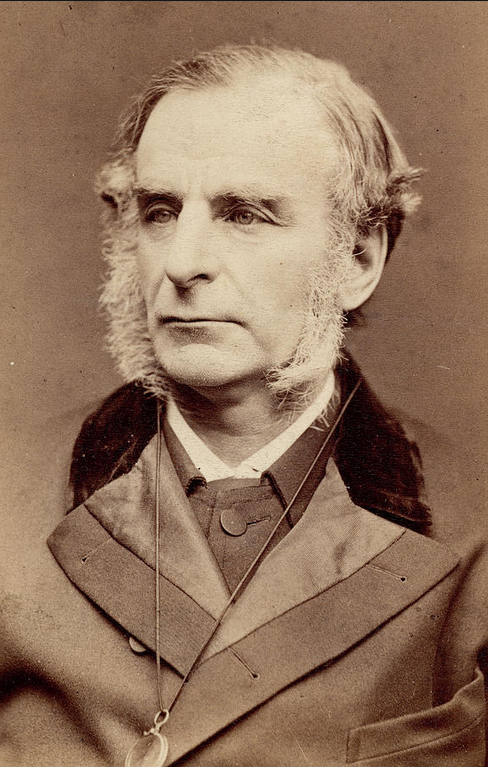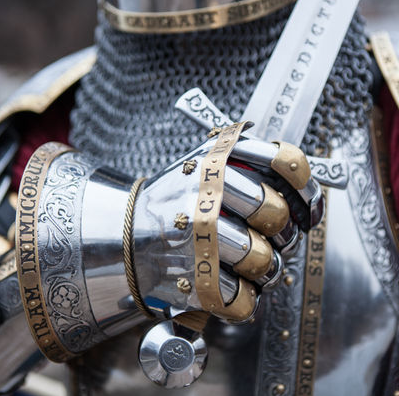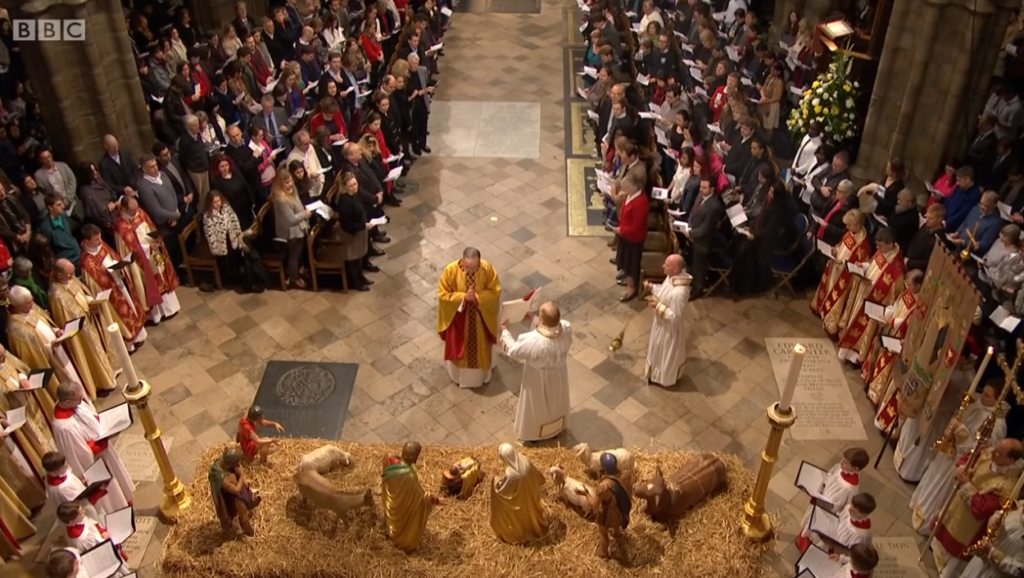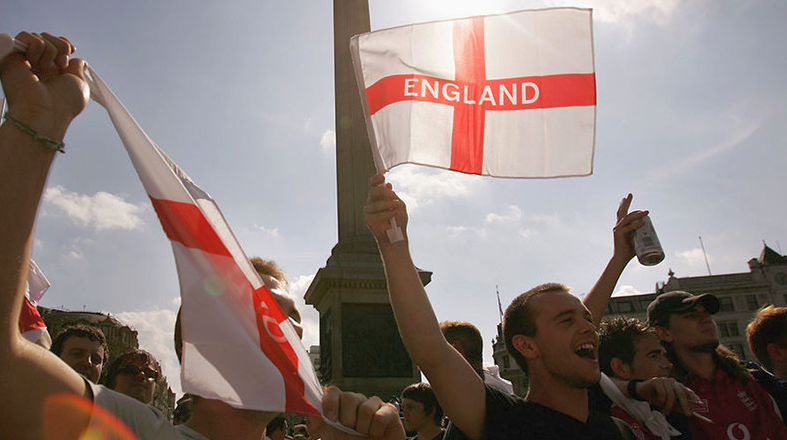__________________________________________________________________________
Editor’s note: The following is extracted from All Saints’ Day and Other Sermons, by Charles Kingsley (published 1878).
__________________________________________________________________________
Chester Cathedral, 1871.
Acts iv. 13, 18-20. “Now when they saw the boldness of Peter and John, and perceived that they were unlearned and ignorant men, they marvelled; and they took knowledge of them, that they had been with Jesus. . . . And they called them, and commanded them not to speak at all nor teach in the name of Jesus. But Peter and John answered and said unto them, Whether it be right in the sight of God to hearken unto you more than unto God, judge ye. For we cannot but speak the things which we have seen and heard.”
Last Thursday was St Peter’s Day. The congregation on that day was, as far as I could perceive, no larger than usual; and this is not a matter of surprise. Since we gave up at the Reformation the superstitious practice of praying to the saints, saints’ days have sunk—and indeed sunk too much—into neglect. For most men’s religion has a touch of self-interest in it; and therefore when people discovered that they could get nothing out of St Peter or St John by praying to them, they began to forget the very memory, many of them, of St Peter, St John, and other saints and apostles. They forget, too often, still, that though praying to any saint, or angel, or other created being, is contrary both to reason and to Scripture; yet it is according to reason and to Scripture to commemorate them. That is to remember them, to study their characters, and to thank God for them—both for the virtues which He bestowed on them, and the example which He has given us in them.
For these old saints lived and died for our example. They are, next of course to the Lord Himself, the ideals, the patterns, of Christian life—the primeval heroes of our holy faith. They shew to us of what stuff the early Christians were made; what sort of stone—to use St Paul’s own figure,—the Lord chose wherewith to build up His Church. They are our spiritual ancestors, for they spread the Gospel into all lands; and they spread it, remember always, not only by preaching what they knew, but by being what they were. Their characters, their personal histories, are as important to us as their writings; nay, in the case of St Peter, even more important. For if these two epistles of his had been lost, and never handed down to us, St Peter himself would have remained, as he is drawn in the Gospels and the Acts, a grand and colossal human figure, every line and feature of which is full of meaning and full of teaching to us.
Now I think that the quality—the grace of God—which St Peter’s character and story specially force on our notice, is, the true courage which comes by faith. I say, the courage which comes by faith. There is a courage which does not come by faith. There is brute courage, which comes from hardness of heart, from stupidity, obstinacy, or anger, which does not see danger, or does not feel pain. That is the courage of the brute. One does not blame it, or call it wrong. It is good in its place, as all natural things are, which God has made. It is good enough for the brutes, but it is not good enough for man. You cannot trust it in man. And the more a man is what a man should be, the less he can trust it. The more mind and understanding a man has, so as to be able to foresee danger, and measure it, the more chance there is of his brute courage giving way. The more feeling a man has, the more keenly he feels pain of body, or pain of mind, such as shame, loneliness, the dislike, ridicule, and contempt of his fellow men; in a word, the more of a man he is, and the less of a mere brute, the more chance there is of his brute courage breaking down, just when he wants it most to keep him up, by leaving him to play the coward and come to shame. Yes. To go through with a difficult and dangerous undertaking, a man wants more than brute courage. He wants spiritual courage—the courage which comes by faith. He needs to have faith in what he is doing; to be certain that he is doing his duty, to be certain that he is in the right. Certain that right will conquer, certain that God will make it conquer, by him or by some one else; certain that he will either conquer honourably, or fail honourably, for God is with him. In a word, to have true courage, man needs faith in God.
To give one example. Look at the class of men who, in all England, undergo the most fearful dangers; who know not at what hour of any night they may not be called up to the most serious labour and responsibility, with the chance of a horrible and torturing death. I mean the firemen of our great cities, than whom there are no steadier, braver, nobler-hearted men. Not a week passes without one or more of these firemen, in trying to save life and property, doing things which are altogether heroic. What do you fancy keeps them up to their work? High pay? The amusement and excitement of fires? The vanity of being praised for their courage? My friends, those would be but paltry weak motives, which would not keep a man’s heart calm and his head clear under such responsibility and danger as theirs. No. It is the sense of duty,—the knowledge that they are doing a good and a noble work in saving the lives of human beings and the wealth of the nation,—the knowledge that they are in God’s hands, and that no real evil can happen to him who is doing right,—that to him even death at his post is not a loss, but a gain. In short, faith in God, more or less clear, is what gives those men their strong and quiet courage. God grant that you and I, if ever we have dangerous work to do, may get true courage from the same fountain of ghostly strength.
Now, St Peter’s history is, I think, a special example of this. He was naturally, it seems, a daring man,—a man of great brute courage. So far so good; but he had to be taught, by severe lessons, that his brute courage was not enough,—that he wanted spiritual courage, the courage which came by faith, and that if that failed him, the brute courage would fail too.
He throws himself into the lake, to walk upon the water to Christ; and as soon as he is afraid he begins to sink. The Lord saves him, and tells him why he had sank. Because he had doubted, his faith had failed him. So he found out the weakness of courage without faith. Then, again, he tells our Lord, “Though all men shall be offended of Thee, yet will I never be offended. I am ready to go with Thee both into prison, and to death.” And shortly after, his mere animal courage breaks out again, and does what little it can do, and little enough. He draws sword, single-handed, on the soldiers in the garden, and cuts down a servant of the high priest’s, and perhaps would have flung his life away, desperately and uselessly, had not our Lord restrained him. But when the fit of excitement is past, his animal courage deserts him, and his moral courage too, and he denies his Lord. So he found out that he was like too many,—full of bodily courage, perhaps, but morally weak. He had to undergo a great change. He had to be converted by the Holy Spirit of God, and strengthened by that Spirit, to have a boldness which no worldly courage can give. Then, when he was strong himself, he was able to strengthen his brethren. Then he was able, ignorant and unlearned man as he was, to stand up before the high priests and rulers of his nation, and to say, simply and firmly, without boasting, without defiance, “Whether it be right in the sight of God to hearken unto you more than unto God, judge ye. For we cannot but speak the things which we have seen and heard.” Yes, my friends, it is the courage which comes by faith which makes truly brave men,—men like St Peter and St John. He who can say, I am right, can say likewise, God is on my side, and I will not fear what man can do to me.
“We will not fear,” said the Psalmist, “though the earth be removed, and though the hills be carried into the midst of the sea.” “The just man, who holds firm to his purpose,” says a wise old heathen, “he will not be shaken from his solid mind by the rage of the mob bidding him do base things or the frowns of the tyrant who persecutes him. Though the world were to crumble to pieces round him, its ruins would strike him without making him tremble.” “Whether it be right,” said Peter and John to the great men and judges of the Jews, “to hearken to God more than to you, judge ye. We cannot but speak the things which we have seen and heard.” We cannot but speak what we know to be true.
It was that courage which enabled our forefathers,—and not the great men among them, not the rich, not even the learned, save a few valiant bishops and clergy, but for the most part poor, unlearned, labouring men and women,—to throw off the yoke of Popery, and say, “Reason and Scripture tell us that it is absurd and wrong to worship images and pray to saints,—tell us that your doctrines are not true. And we will say so in spite of the Pope and all his power,—in spite of torture and a fiery death. We cannot palter; we cannot dissemble; we cannot shelter ourselves under half-truths, and make a covenant with lies. ‘Whether it be right in the sight of God to hearken unto you more than to God, judge ye. We cannot but speak the things which we know to be true.’”
So it has been in all ages, and so it will be for ever. Faith, the certainty that a man is right, will give him a courage which will enable him to resist, if need be, the rich ones, the strong ones, the learned ones of the earth. It has made poor unlearned men heroes and deliverers of their countrymen from slavery and ignorance. It has made weak women martyrs and saints. It has enabled men who made great discoveries to face unbelief, ridicule, neglect, poverty; knowing that their worth would be acknowledged at last, their names honoured at last as benefactors by the very men who laughed at them and reviled them. It has made men, shut up in prison for long weary years for doing what was right and saying what was true, endure manfully for the sake of some good cause, and say,—
“Stone walls do not a prison make,
Nor iron bars a cage;
Minds innocent and quiet take
That for an hermitage.
If I have freedom in my thought,
And in my love am free,
Angels alone, that soar above,
Enjoy such liberty.”
Yes; settle it in your hearts, all of you. There is but one thing which you have to fear in earth or heaven,—being untrue to your better selves, and therefore untrue to God. If you will not do the thing you know to be right, and say the thing you know to be true, then indeed you are weak. You are a coward, and sin against God, and suffer the penalty of your cowardice. You desert God, and therefore you cannot expect Him to stand by you.
But if you will do the thing you know to be right, and say the thing you know to be true, then what can harm you? Who will harm you, asks St Peter himself, “if you be followers of that which is good? For the eyes of the Lord are over the righteous, and His ears are open to their prayers. But if ye suffer for righteousness’ sake, happy are ye; and be not afraid of those who try to terrify you, neither be troubled, but sanctify the Lord God in your hearts. Remember that He is just and holy, and a rewarder of all who diligently seek Him. Worship Him in your hearts, and all will be well. For says David again, “Lord, who shall dwell in Thy tabernacle, or who shall rest upon Thy holy hill? Even he that leadeth an uncorrupt life, and doeth the thing which is right, and speaketh the truth from his heart. Whoso doeth these things shall never fall.”
Yes, my friends; there is a tabernacle of God in which, even in this life, He will hide us from the strife of tongues. There is a hill of God on which, even in the midst of labour and anxiety, we may rest both day and night. Even Jesus Christ, the Rock of Ages,—He who is the Righteousness itself, the Truth itself; and whosoever does righteousness and speaks truth dwells in Christ in this life, as well as in the life to come; and Christ will strengthen him by His Holy Spirit to stand in the evil day, if it shall come, and having done all, to stand. My dear friends, if any of you are minded to be good men and women, pray for the Holy Spirit of God. First for the spirit of love to give you good desires; then the spirit of faith, to make you believe deeply in the living God, who rewards every man according to his work; and then for the spirit of strength, to enable you to bring these desires to good effect.
Pray for that spirit, I say; for we all need help. There are too many people in the world—too many, perhaps, among us here—who are not what they ought to be, and what they really wish to be, because they are weak. They see what is right, and admire it; but they have not courage or determination to do it. Most sad and pitiable it is to see how much weakness of heart there is in the world—how little true moral courage. I suppose that the reason is, that there is so little faith; that people do not believe heartily and deeply enough in the absolute necessity of doing right and being honest. They do not believe heartily and deeply enough in God to trust Him to defend and reward them, if they will but be true to Him, and to themselves. And therefore they have no moral courage. They are weak. They are kind, perhaps, and easy; easily led right; but, alas! just as easily led wrong. Their good resolutions are not carried out; their right doctrines not acted up to; and they live pitiful, confused, useless, inconsistent lives; talking about religion, and yet denying the power of religion in their daily lives; playing with holy and noble thoughts and feelings, without giving themselves up to them in earnest, to be led by the Spirit of God, to do all the good works which God has prepared for them to walk in. Pray all of you, then, for the spirit of faith, to believe really in God; and for the spirit of ghostly strength, to obey God honestly. No man ever asked earnestly for that spirit but what he gained it at last. And no man ever gained it but what he found the truth of St Peter’s own words, “Who will harm you if ye be followers of that which is good?”










